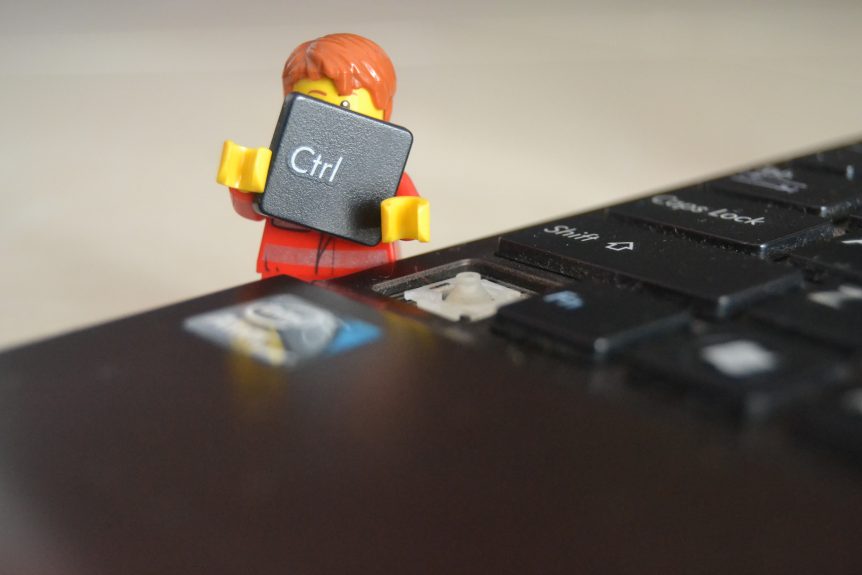Allowing children to access the internet can be a scary and stressful experience.
There are countless horror stories in the news about children being targeted by hackers and criminals, as well as plenty of stories about cyberbullying, and then there’s all the inappropriate content available online so easily.
But the internet is also a wonderful resource full of your child’s friends, educational materials and innocent entertainment that will enrich and expand their lives and develop their minds.
The constant and simple key to keeping children safe online is communication. Talk to your children about the dangers of the internet, and the things they can do to stay safe.
Most importantly, tell your children that they can ask or tell you absolutely anything about their experiences online without fear of personal judgement. This way, they can use you as a resource for anything they’re unsure of, until they are confident and competent enough to handle the internet on their own.
There are varying stages of security and caution you may want to take, depending on your child’s age, from a total lockdown for pre-schoolers to simply providing older children with advice and resources of their own.
However, some information in this guide is universal and applies as much to adults as it does to children.
Passwords
It’s vital to have a conversation with children about passwords, and how they should set theirs in order to stay safe.
Passwords are the key to more personal information than we realise, and if the same password is used for everything from email to Facebook to online shopping then there’s a lot of damage the wrong person could do if they successfully get in.
Talk to children about using passwords that are easy for them to remember, but difficult for anyone else to guess. Encourage them to check their password for strength and security and try to change it once or twice a month.
Also suggest to them that they use different passwords for every application they access online, as well as for the computer itself.
It’s always a good idea for a parent or other trusted adult to have access to these passwords too, just in case they are forgotten or access is needed in an emergency.
Online Vs offline conduct
Sitting behind a screen can make even the most polite and well intentioned among us act in ways we would never act if we were face to face with the people we were speaking with online, or in a physical situation, much like the way that being behind the wheel of a car can transform someone from mild mannered into enraged in no time at all.
Children, like anyone else, can forget that any interaction they have online is effectively also an interaction they’re having in the real world. This is where basic etiquette rules can help children to form good online habits even when you’re not around.
Explain to them that they should never act towards others online in a way that they wouldn’t in real life. This does mean taking context into account, for example, playing a game involving battling other players is fine, but personal abuse and insults during in-game chats is not.
Likewise, when it comes to approaches from strangers online, children should be taught early on that they should be wary, whether they’re asked to meet a new person, give out personal information or accept offers that seem too good to be true.
If in doubt, let children know that they should seek advice from a trusted adult who will assess their dilemma without judging them personally.
Playing games online
Games are everywhere and offer unique ways of entertainment, education and creativity.
Although its a difficult task to decide which is the right game, website, streaming, tablet, smartphone or console and how to set up parental controls to keep your child safe when playing games online with chatting, speaking and live streaming facilities but with rapid change in technology its very important to keep your child safe online from different risk associated with different mediums and users.
Social network rules
Social networking sites are used by millions of people every day, often several times a day, to interact with friends and family, so it’s only natural that a child exploring and developing their own social world should want to join one of these sites.
If you’re responsible for a child, check out the social networks they’re using and get to grips with everything from the general way the network is used, to its privacy settings, and any user or security failings that are associated with it.
Barring a child from using a social network because of horror stories from previous users is not necessarily the right course of action, but others’ bad experiences can be turned into sensible advice for children in your care so that they know what to look out for while they use the site.
If possible, join the social network yourself and add your child as a contact. This way you can keep an eye on the kind of information they’re posting.
If you see anything problematic, explain gently to your child that your only concern is for their safety, and avoid judging their actions in a way that may make them try to hide their online behaviour from you in the future.
Site blocks and monitoring
For very young children, blocks on unsuitable content are a good idea, until the child is old enough to be trusted with navigating the internet on their own.
This prevents children accidentally stumbling upon content of any kind that they shouldn’t be seeing, and gives you peace of mind.
The kind of blocks you might want to look at include account blocks on sites like Google which will allow only safe search results to appear, or blocks on your computer that prevent certain kinds of sites from being shown, or even a block via your internet provider.
There are also apps and tools that you can use to monitor and control your child’s internet access and activity, so you don’t have to worry about constantly keeping up with any developments in unsuitable content yourself, letting these services do the work for you.
Wifi password blocks
Another good idea, particularly for very young children, is a block on your Wifi or computer password being saved to the device your child uses.
This way, if they want to go online they will need to ask you for access, which means you can make sure you’re always there when they’re browsing.
Sharing information
Teach children that their information can be gleaned in many different ways, and they should always be wary of being asked for information by a new source, no matter what it is.
Everything from social networks to competitions and free software asks for information or gathers data from users, so it’s not always easy to spot when it’s happening, and it’s not always in the form of a strange email or online games asking for bank account details.
Advise your child to check with you before they enter any online draws, register for an online games or service, or join up to any new site which asks them for information about themselves. This may not seem necessary a lot of the time, but it gets them into the habit of thinking every time they give away their details, which is more than many of us currently do.
Creating a free web-based email address on a service like Gmail or Hotmail and using it exclusively for sign up for things like the above can be helpful, as it means any associated spam will go to an email address that isn’t otherwise used.
Suggest that your child only ever uses usernames that give away nothing about them personally, avoiding details like their names, ages, genders or locations. The less personal information is available about them wherever they go, the less information any malicious parties have to go on.
Cyberbullying
Online bullying can be a huge problem, regardless of whether your child is on the doling out or receiving end. Many online bullies don’t realise the pain they can cause, while victims often feel too scared or silly to speak up about it.
Because communication is so easy for children across so many platforms, the bullying that can be unpleasant enough at school alone can become unbearable and even more public, even following children home to their personal space once they’ve left school.
Talk to your child about online bullying and what they think it means, and have them think about how they would feel in certain situations if they were on the receiving end of nasty online behaviour.
Encourage your child to tell you if anything has upset them online, and don’t be afraid to tackle the subject with a school if necessary, because all children need to understand that they have the power, through the internet, to cause a lot of distress to others even if they don’t realise it.
There are some powerful films that children can watch which can help them to see the issue from a more objective point of view, including an American production from 2011 called Cyberbully which is ideal for showing in schools.
More useful sources:
Tips from parents at Google click here
Tips from the NSPCC, about keeping children safe online: click here
Tips from NIDirect Government Services on children safety online Click here
Childnet International guides on keeping children safe online Click here
Mumsnet guides on children and young people safety online: Click here
FREE ONLINE TOOLS for child safety and parental controls
Safety Lock on YouTube (free): visit here for more details
Google SafeSearch (free): visit here
McAfee Parental Controls for Sky (12 months free to Sky customers): visit here
BT Family Protection (free to BT broadband and dial-up customers) : visit here
TalkTalk HomeSafe family protection (free to TalkTalk customers) : visit here
Virgin Media Security (free to Virgin Media broadband customers): visit here
Norton Family (free basic version): visit here
Keeping safe online
Some bonus banking tips below for parents from Yahoo Finance: Visit here for detail article.
Online banking fraud losses are on the rise, up to £40 million last year, according to Financial Fraud Action UK.
So it’s important to keep safe when using online banking. Here a few simple steps to follow to avoid being caught out:
-
Avoid public computers or public Wi-Fi hotspots when using online banking
-
Secure your home wireless network so others can’t access it
-
Keep your antivirus software up to date
-
Never leave your computer logged in – make sure you log out fully
-
Look for the locked padlock or unbroken key when banking online
-
Don’t open emails from unknown sources
-
Don’t write passwords down in full or share with anyone
-
Don’t share your details with anyone over email or by phone even if they claim to be from your bank.
How you have managed online safety issues of your own children? Add your advice and experiences in the comments section
The author’s views are entirely his or her own and may not reflect the views of CodifyMedia.
Share this Post


